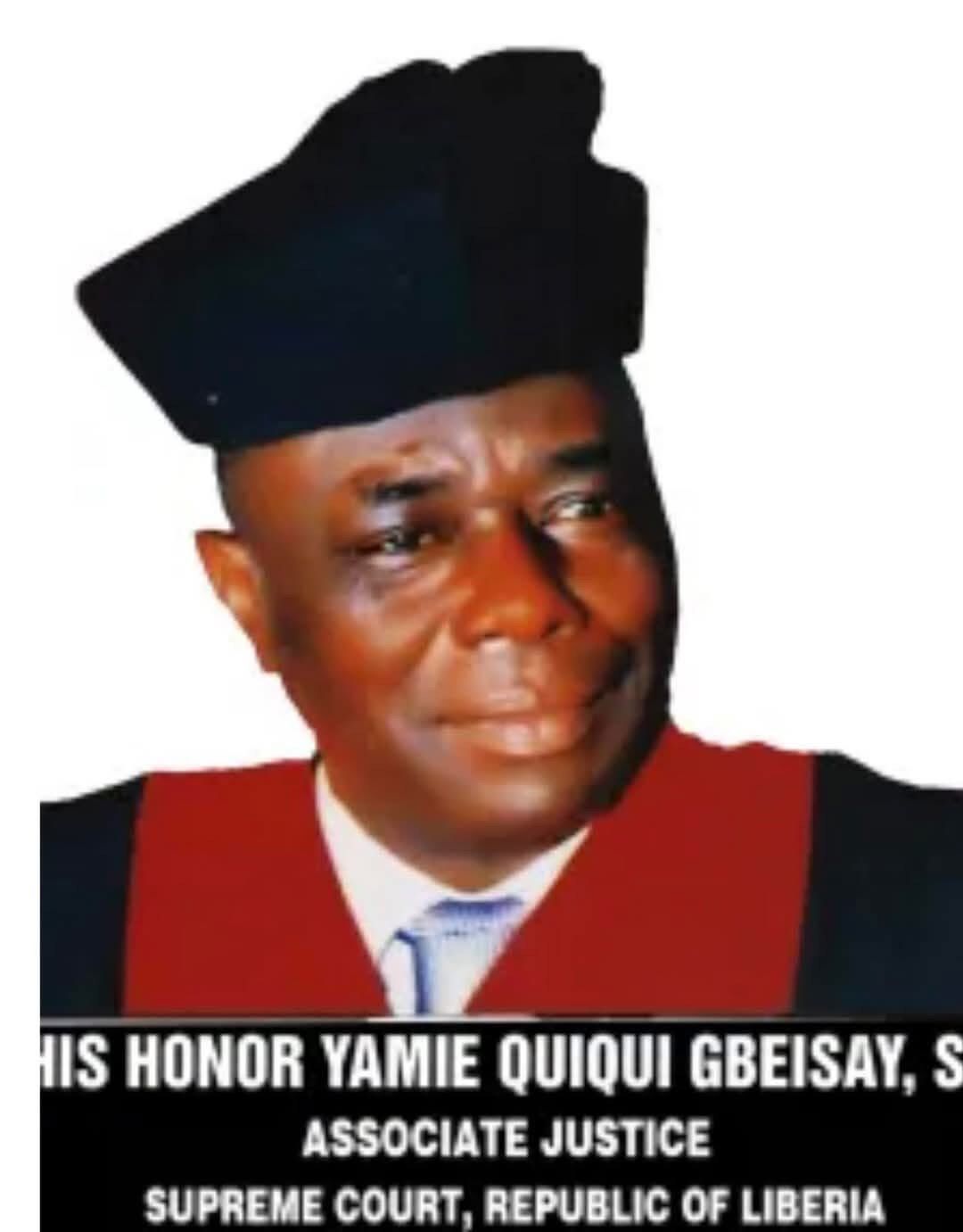Nepotism Or Legality? Assessing The Recent Appointment Of Magistrate In Liberia
By: Cllr. Kanio Bai Gbala, LLB, LLM.
Assistant Professor of Law
Louis Arthur Grimes School of Law
University of Liberia
Member, National Executive Committee
Liberia National Bar Association (LNBA)
MONROVIA-The recent appointment of magistrates by President Joseph Nyumah Boakai continues to draw considerable public commentary, particularly surrounding the appointment of Mr. Willeyon Gbeisay, son of the Honorable Chief Justice of Liberia, His Honor Yamei Gbeisay. Critics have been quick to allege nepotism, suggesting that the Chief Justice has unduly influenced the process in favor of his son. Yet a closer examination of the relevant legal framework reveals that such charges are misplaced, and risk politicizing an appointment process that is clearly vested elsewhere by law.
𝗧𝗵𝗲 𝗟𝗮𝘄 𝗼𝗻 𝗔𝗽𝗽𝗼𝗶𝗻𝘁𝗺𝗲𝗻𝘁 𝗼𝗳 𝗠𝗮𝗴𝗶𝘀𝘁𝗿𝗮𝘁𝗲𝘀
The governing law is the New Judiciary Law of Liberia (Title 17, Revised Code), Section 7.5, which expressly vests the appointment of magistrates in the President of the Republic of Liberia. Under this provision, the President appoints Stipendiary Magistrates and Associate Magistrates for the magisterial courts. The law further provides for a four-year tenure, subject to reappointment and removal under specific safeguards. Crucially, there is no statutory role for the Chief Justice or the Judiciary in the initiation, vetting, or finalization of such appointments.
𝗧𝗵𝗲 𝗖𝗼𝗱𝗲 𝗼𝗳 𝗖𝗼𝗻𝗱𝘂𝗰𝘁 𝗮𝗻𝗱 𝗡𝗲𝗽𝗼𝘁𝗶𝘀𝗺 𝗖𝗹𝗮𝗶𝗺𝘀
The Liberian Code of Conduct (2014) prohibits public officials from using their offices to secure undue advantage for relatives. This safeguard is important to preserve the integrity of public service. However, the key element of nepotism is influence over a decision where one has appointing, recommending, or approving authority. In the present case, such authority rests not with the Chief Justice but with the President, acting within the powers assigned to the Executive by statute. Absent evidence that the Chief Justice intervened to distort or circumvent the process, the bare fact of familial relationship does not rise to the level of nepotism.

𝗧𝗵𝗲 𝗦𝗰𝗼𝗽𝗲 𝗮𝗻𝗱 𝗦𝗶𝘇𝗲 𝗼𝗳 𝘁𝗵𝗲 𝗝𝘂𝗱𝗶𝗰𝗶𝗮𝗿𝘆
Liberia’s judiciary is vast, covering multiple counties and tiers of courts. The appointment of magistrates is part of the regular functioning of the system, and many individuals (lawyers and non-lawyers alike) have been called to serve. It would be unreasonable to suggest that children or relatives of judicial officers are permanently barred from public service in the courts merely because of their lineage. Such a stance would not only be discriminatory but also deny the judiciary access to qualified Liberians eager to serve.
𝗤𝘂𝗮𝗹𝗶𝗳𝗶𝗰𝗮𝘁𝗶𝗼𝗻𝘀 𝗮𝗻𝗱 𝗣𝗿𝗲𝗰𝗲𝗱𝗲𝗻𝘁
Mr. Willeyon Gbeisay is eminently qualified to serve as magistrate, with the education, experience, and grounding necessary to discharge the responsibilities of the office. In fact, Liberian law has long permitted the appointment of non-lawyers as magistrates, recognizing the dual role of magistrates as both judicial officers and community adjudicators in a system where access to justice must be broadened. There is therefore ample legal precedent for a wide range of qualified citizens (including non-lawyers) being appointed to serve in this capacity.
𝗚𝘂𝗮𝗿𝗱𝗶𝗻𝗴 𝗔𝗴𝗮𝗶𝗻𝘀𝘁 𝗨𝗻𝘄𝗮𝗿𝗿𝗮𝗻𝘁𝗲𝗱 𝗣𝗼𝗹𝗶𝘁𝗶𝗰𝗶𝘇𝗮𝘁𝗶𝗼𝗻
The tendency to politicize every appointment risks undermining public trust in governance and discouraging capable citizens from entering public service. In this case, allegations of nepotism ignore the plain letter of the law, the proper separation of powers, and the constitutional safeguards in place. Liberia’s democracy is better served when public debate is grounded in law and fact, not conjecture or suspicion.
𝗖𝗼𝗻𝗰𝗹𝘂𝘀𝗶𝗼𝗻
The appointment of Mr. Willeyon Gbeisay should be judged on the merits of his qualifications and the legality of the process, not on speculative charges of undue influence. The Constitution and laws of Liberia provide ample checks against abuse. We must therefore resist the reflex to politicize legitimate decisions, especially in institutions as vital to our democracy as the judiciary.
𝗗𝗜𝗦𝗖𝗟𝗔𝗜𝗠𝗘𝗥: These are the personal views of the author and do not reflect the views of The Centrism Movement which he leads.
Alphonso Toweh
Has been in the profession for over twenty years. He has worked for many international media outlets including: West Africa Magazine, Africa Week Magazine, African Observer and did occasional reporting for CNN, BBC World Service, Sunday Times, NPR, Radio Deutchewells, Radio Netherlands. He is the current correspondent for Reuters
He holds first MA with honors in International Relations and a candidate for second master in International Peace studies and Conflict Resolution from the University of Liberia.


Comments are closed.